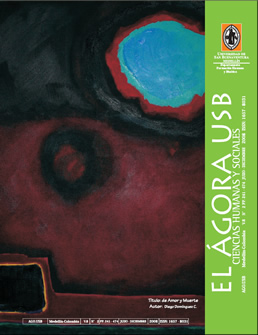View/Download
How to Cite
Cassidy, R., Rowland, D., Vallenttini, V., & Coskeran, H. (2008). The Brazilian bolsa escola. Lessons for conditional cash transfer schemes around the world. Ágora USB, 8(2), 389–416. https://doi.org/10.21500/16578031.1531
More Citation Formats
License terms
▼
The authors are also adhere to the creative commons license 4.0 (https://creativecommons.org/licenses/by-nc-nd/4.0/deed.es)
Attribution - NonCommercial - SinDerivar 4.0 International (CC BY - NC - ND 4.0)
Abstract
The Bolsa Escola (‘school stipend’) and its successor the Bolsa Familia (‘family stipend’) schemes have formed a crucial and successful part of Brazil’s welfare program. Bolsa Escola provided aid to Brazil’s poorest families on the condition that their children attended school, and Bolsa Familia has extended this idea, giving aid on the condition that children both attend school and receive vaccinations. Bolsa Familia is currently the largest Conditional Cash Transfer Program (CCTP) in the world, costing roughly 0.5% of Brazilian GDP and helping around 11.2 million families (around 44 million Brazilians, constituting roughly one fifth of the population). Multilateral institutions have praised the schemes, and they are setting a leading example to other developing nations. In 2005, Paul Wolfowitz (former president of the World Bank) said, ‘Bolsa Familia has already become a highly praised model of effective social policy. Countries around the world are drawing lessons from Brazil’s experience and are trying to produce the same results for their own people’
Downloads
Download data is not yet available.




















